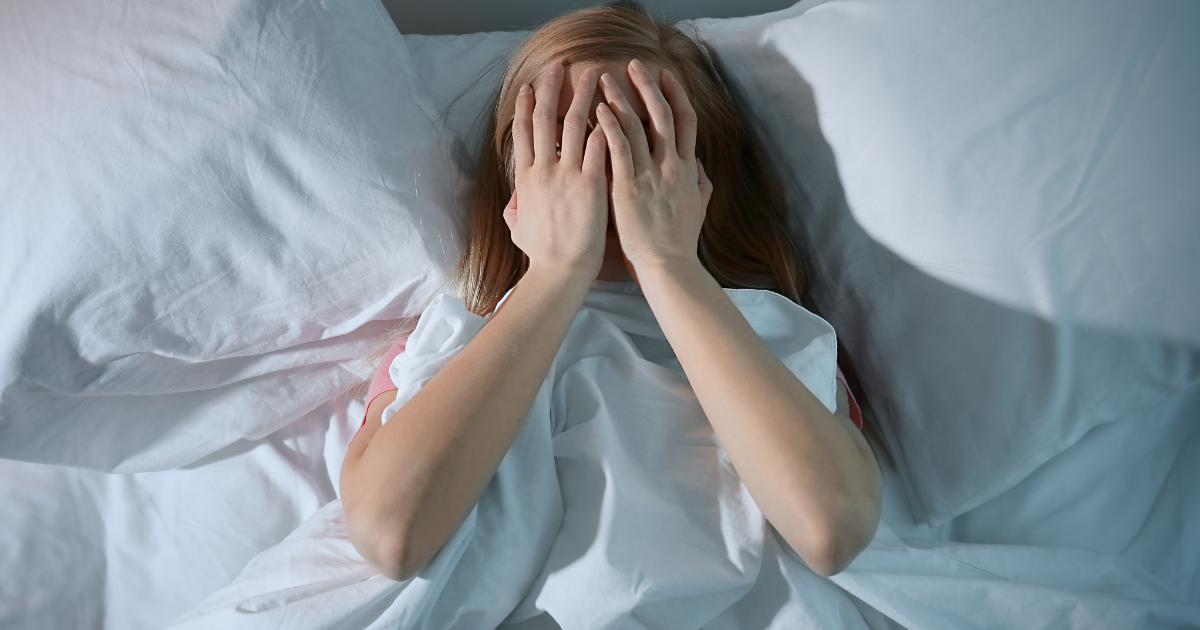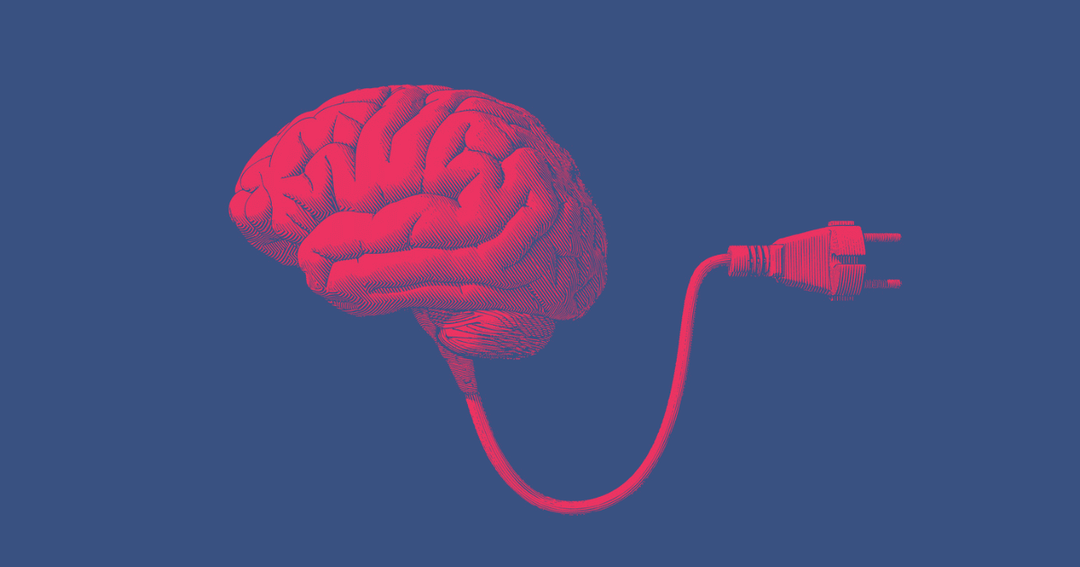Understanding Sleep Paralysis: Causes and Ways to Manage It

Have you ever woken up suddenly, unable to move or speak, feeling trapped in your own body? It's a scary experience, and if it's happened to you, you're definitely not alone. This unsettling phenomenon is known as sleep paralysis, and it's more common than you might think, affecting up to 40% of people at some point in their lives.
Understanding what causes sleep paralysis and how to manage it can make a big difference in helping you sleep better at night.
What Is Sleep Paralysis?
So, what exactly is sleep paralysis? In simple terms, it's a temporary inability to move or speak when you're waking up or falling asleep. Essentially, your mind is awake, but your body is still in sleep mode. This disconnect happens during transitions between wakefulness and sleep and can be quite upsetting if you're not familiar with it.
Types of Sleep Paralysis
Sleep paralysis can be categorized based on when it occurs and how often it happens:
Based on Timing:
- Hypnagogic Sleep Paralysis: Occurs as you're falling asleep. Your body begins to relax, but your mind remains aware, leading to an episode where you're conscious but can't move.
- Hypnopompic Sleep Paralysis: Happens as you're waking up. Your mind becomes conscious before your REM sleep cycle has finished, leaving you temporarily unable to move.
In both scenarios, you're awake but unable to control your body.
Based on Frequency and Association:
- Isolated Sleep Paralysis (ISP): Episodes happen without any connection to other sleep disorders. Many people experience isolated incidents at some point in their lives.
- Recurrent Sleep Paralysis (RSP): You experience multiple episodes over time, which may be associated with conditions like narcolepsy, a neurological disorder characterized by excessive daytime sleepiness and sudden loss of muscle control.
- Recurrent Isolated Sleep Paralysis (RISP): Frequent episodes occur without links to narcolepsy or other sleep disorders.
What Does Sleep Paralysis Feel Like?
If you've never experienced sleep paralysis, you might wonder what it feels like. Here's how many people describe it:
- Being Awake but Unable to Move: You might be fully conscious and aware of your surroundings but completely unable to move any part of your body. This can create feelings of panic or helplessness.
- Sensation of Pressure: It often feels like there's a heavy weight on your chest, making it seem hard to breathe. You might feel as if something is pressing down on you.
- Hallucinations: You might see shadows, hear strange noises, or sense a presence in the room. These hallucinations can be visual, auditory, or even tactile, and they can be quite vivid and realistic.
- Intense Emotions: Feelings of fear, dread, or panic are common, especially when you're unsure what's happening. Some people also report a sense of impending doom.
- Out-of-Body Experiences: Occasionally, you might feel like you're floating above your body or disconnected from yourself.
How Long Does Sleep Paralysis Last?
When you're in the middle of a sleep paralysis episode, it can feel like it goes on forever. But in reality, it usually lasts anywhere from a few seconds to a couple of minutes. While that might not sound long, those moments can be intense and unsettling. The good news is that it will pass on its own, and you'll regain control of your muscles.
What Causes Sleep Paralysis?
So, why does sleep paralysis happen? It occurs when there's a bit of a mix-up between your brain and body during sleep transitions.
Let's break it down:
When we sleep, especially during REM (Rapid Eye Movement) sleep, our bodies naturally enter a state called REM atonia. That's just a fancy way of saying our muscles are temporarily paralyzed. It's actually a good thing—it prevents us from acting out our dreams and potentially hurting ourselves.
Sometimes, our minds wake up before our bodies do. So you're conscious, but your muscles are still in "sleep mode." This mismatch is what leads to sleep paralysis.
Several factors can make sleep paralysis more likely:
- Sleep Deprivation: Not getting enough sleep can throw off your sleep cycles.
- Irregular Sleep Schedules: Shift work or jet lag can mess with your body's internal clock.
- Stress and Anxiety: High-stress levels can interfere with restful sleep.
- Sleeping on Your Back: Some studies suggest this position might trigger sleep paralysis.
- Certain Medications: Stimulants or some antidepressants can affect how you sleep.
- Other Sleep Disorders: Conditions like narcolepsy are often linked to sleep paralysis.
Also Read: Why Sleep Deprivation Can Lead to Serious Health Issues
Does Sleep Paralysis Have Any Other Meaning?
People's perceptions of sleep paralysis can vary widely, often influenced by cultural and personal beliefs. In some cultures, sleep paralysis is seen as a spiritual experience or a sign of something beyond the physical world. In others, it's associated with negative forces or malevolent beings.
Because sleep paralysis often involves vivid hallucinations and feelings of fear, it's no surprise that it has inspired many myths and stories about sleep demons or supernatural entities. Some interpret these experiences as a sign of spiritual awakening, while others see them as something more ominous.
From a medical standpoint, sleep paralysis is a natural phenomenon that occurs during REM sleep. The sensations and visions happen because your brain is partially in a dream state while you're awake.
Is Sleep Paralysis Dangerous?
While sleep paralysis can be unsettling, it's not physically harmful. Episodes usually end on their own without any medical intervention. However, the emotional impact can be significant.
If it's causing you considerable distress, it might be helpful to talk to a healthcare professional. They can provide guidance and suggest strategies to manage or reduce episodes.
How Can I Prevent Sleep Paralysis?
While it's not always possible to completely prevent sleep paralysis, there are practical steps you can take to reduce how often it happens and lessen its impact:
- Prioritize Sleep: Aim for 7–9 hours of sleep each night to support your body's natural rhythms. Being well-rested can make a big difference.
- Maintain a Regular Sleep Schedule: Try to go to bed and wake up at the same times each day, even on weekends. Consistency helps regulate your body's internal clock.
- Create a Relaxing Bedtime Routine: Wind down with calming activities like reading, taking a warm bath, or gentle stretching. This signals to your body that it's time to sleep.
- Avoid Caffeine and Alcohol Before Bed: These substances can interfere with your sleep cycles and make disturbances more likely.
- Optimize Your Sleep Environment: Keep your bedroom dark, quiet, and cool. Consider using blackout curtains or a white noise machine to create a restful space.
- Sleep on Your Side: If you usually sleep on your back, try switching to your side. This might help reduce episodes.
- Manage Stress: Practice relaxation techniques like deep breathing, meditation, or yoga to calm your mind before bed.
Also Read: How to Get Better Sleep
What Treatments Are Available for Sleep Paralysis?
If sleep paralysis is frequent or particularly distressing, help is available. It's important to consult a doctor or healthcare professional to seek guidance tailored to your situation.
While you might not be able to eliminate it entirely, there are effective treatments that can reduce episodes and ease your concerns:
- Improving Sleep Habits: Reinforcing healthy sleep routines can make a big difference. Stick to a regular schedule and create a comfortable sleep environment.
- Addressing Underlying Conditions: Treating issues like narcolepsy or sleep apnea may alleviate symptoms. A healthcare professional can help diagnose these conditions.
- Cognitive Behavioral Therapy (CBT): This therapy can help you manage anxiety related to sleep paralysis and improve your overall sleep quality. A therapist can teach you strategies to cope with episodes.
- Medication: In some cases, medications may be prescribed to regulate your sleep patterns or reduce REM sleep, which might help.
Sleep Well and Take Control
Dealing with sleep paralysis can be challenging, but understanding what's happening is a big step toward managing it. While you might not be able to prevent it completely, adopting healthy sleep habits and addressing any underlying issues can significantly reduce how often it happens and make it less unsettling when it does.
If you're looking for a natural way to support better sleep and prefer melatonin alternatives, Sip2Sleep® is a clinically proven natural sleep aid. It's a blend of natural ingredients designed to promote relaxation and help you get a restful night's sleep.
Taking 2 to 3 droppers of Sip2Sleep® under your tongue about 30 minutes before bed can help calm your mind and body, making it easier to fall asleep and potentially reducing sleep disturbances like sleep paralysis.
Ready to take control of your sleep and enjoy peaceful nights? Try Sip2Sleep® tonight and see how it can make a difference in your nightly routine.
Disclaimer: This article is for informational purposes only and should not be considered medical advice. Always consult with a qualified healthcare professional before making any changes to your sleep habits or health routine, especially if you have any underlying medical conditions.







